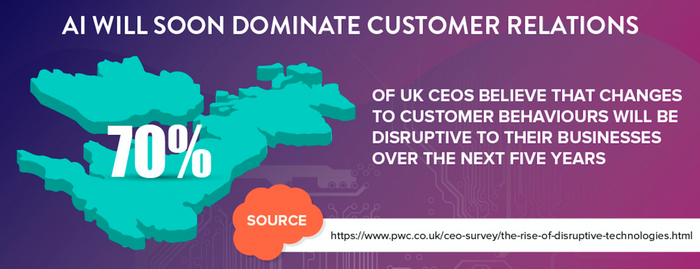Is Personalization Actually Possible?
February 12, 2018

By Abhi Yadav
BOSTON, MA - What’s the best way to win over your customers and keep them coming back? Show them that you know them.
Consumers can often feel like faceless shoppers in a warehouse of goods. This reduces their loyalty to one specific brand or store, and makes them more likely to alter their purchase behavior at the first sign of a promotion. The competitive advantage that companies like Amazon have lies in their deep and accurate predictions and personalization. Consumers ultimately want the companies they purchase from to provide them with promotions and products that are tailored to their specific tastes.
86% of customers say that personalization has an impact on what they buy and who they buy from and one third of customers feel that there isn’t enough personalization in their current shopping experience. It’s tough to compete right now for a lot of online retailers because their data is not being translated into those insights that Amazon shoppers are taking for granted.
De-silo, unify, leverage: capitalizing on customer data
In order to create a curated shopping experience for customers, companies need to move through a cycle of data collection, decision making, and delivery quickly and accurately in order to capture and retain business.
To achieve this, there are two key things companies need to do:
De-silo, and unify their data. This creates a comprehensive and integrated view of shoppers across all touchpoints, even enriching this data with third party information that goes beyond what customers provide themselves.
Leverage that clean and complete data to conduct deep analysis and draw correlations between thousands of data points. This allows you to analyze and predict the behaviors that are most important to your business.
So why aren’t more companies doing this? The truth is that capitalizing on customer data isn’t easy.
Data resides in dozens of data sources that exist both inside and outside a company’s walls (e.g. marketing cloud, social, email, online, mobile, billing, CRM…). It exists in both structured (e.g. billing systems) and semi-structured forms (e.g. emails, clickstream, social media posts). It also lacks a consistent, unique identifier (e.g. customer #, social security number). Digital data is very messy, yet very rich - so tying it together with a known customer is crucial for a company’s success.

INFOGRAPHIC: The AI Customer Revolution Is Here
Systems can become smart and adaptive thanks to AI
Here’s where an AI engine can help; implementing Artificial Intelligence/Machine Learning enables the creation of systems that are both smart and adaptive enough to solve problems faster and better than a human ever could. This requires a Dynamic Data Engine (DDE) and an Embedded Analytics Engine (EAE).
To have a comprehensive view of your customers, you need to unify data across all of your sources: online, mobile, in store etc. A DDE can identify, cleanse, unify, and enrich this data in real time, and for each individual customer. Once this has been done, an EAE uses the curated data to predict customer behavior with minimal human intervention. It can tell you, for example, that people who purchased a combination of seasonal decorations from your store in the winter are less likely to respond to general discounts, but more likely to respond to specific holiday promotions, and you can tailor your marketing accordingly. It can also show you differences across demographics, and can suggest new ways to position your marketing across micro segments.
Personalization through use of an AI engine keeps your marketing fresh, helping customers see products or services that they are actually interested in purchasing. In fact, consumers now expect personalized, tailored marketing. A recent study by Marketo demonstrated that 79% of consumers say they are only likely to use a brand’s promotions if the promotions are tailored to previous interactions. Another study by Salesforce demonstrated that by 2020, 51% of consumers expect that companies will anticipate their needs and make relevant suggestions before they make contact.
In essence, AI and machine learning systems, like Zylotech, resolve the current mismatch between limited human capacity and the tidal wave of available data in order to match consumer expectations of a personalized shopping experience.
This article is part of our Customers of Tomorrow series for February 2018. Contact [email protected] if you are interested in contributing.

Abhi Yadav is the CEO and Co-Founder of Zylotech, an artificial intelligence-powered customer data & analytics platform spun out of MIT in 2014. An engineer and MBA from MIT Sloan School of Management, Abhi is very passionate about AI-driven enterprise innovations, customer insights, and tech start-ups. Zylotech's AutoML platform solves data variety and quality challenges to create a unified and enriched customer database using all available data sources, integrating with a variety of marketing clouds to enable deeper customer insights. If you’d like to learn more, or talk about a possible use case at your company, get in touch.
About the Author(s)
You May Also Like


.jpg?width=700&auto=webp&quality=80&disable=upscale)
.jpg?width=700&auto=webp&quality=80&disable=upscale)
.jpg?width=700&auto=webp&quality=80&disable=upscale)



.jpg?width=300&auto=webp&quality=80&disable=upscale)
.jpg?width=300&auto=webp&quality=80&disable=upscale)